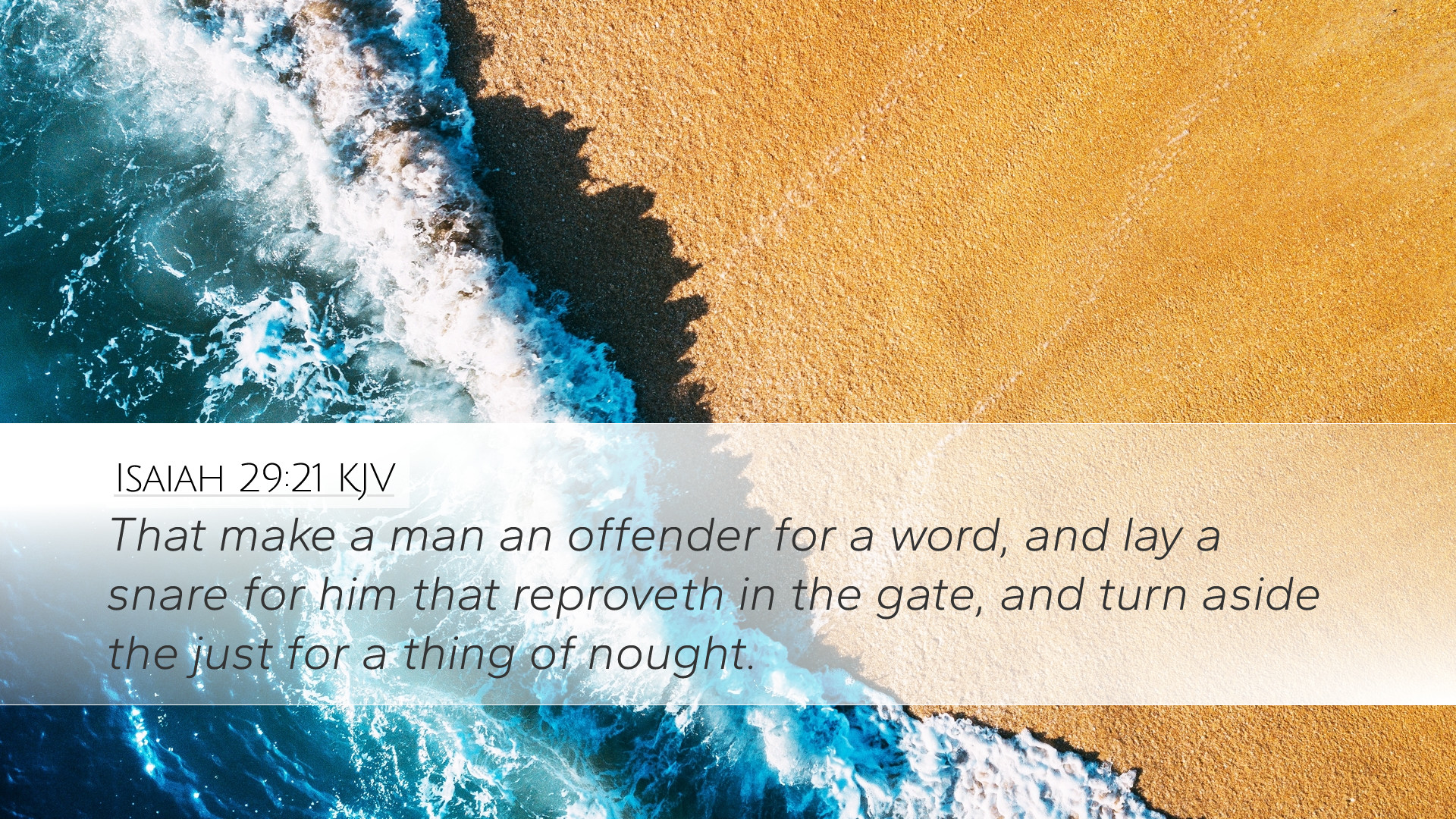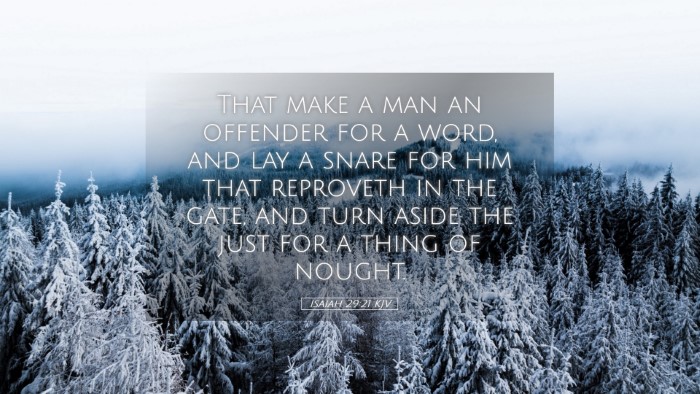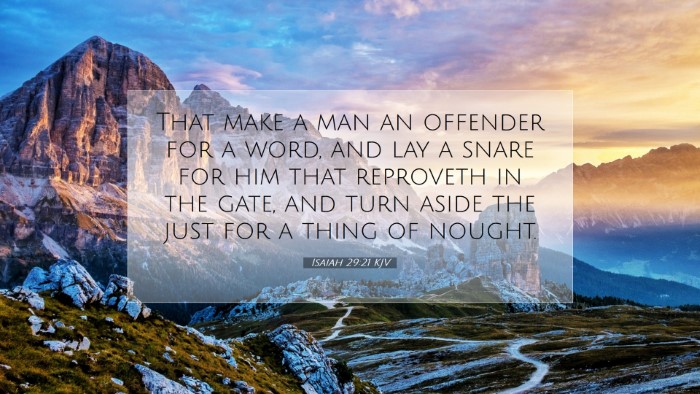Commentary on Isaiah 29:21
Isaiah 29:21 states:
"To turn aside the needy from judgment, and to take away the right from the poor of my people, that widows may be their prey, and that they may rob the fatherless."
Contextual Background
The Book of Isaiah is a prophetic text addressing various groups within the ancient nation of Israel and beyond. This particular verse lies in a section that emphasizes divine judgment against social injustices and the moral decay experienced by God’s chosen people. The historical context includes the Assyrian threat and the spiritual complacency of Judah, leading to social corruption.
Summary of Commentaries
Insights from Matthew Henry
Matthew Henry provides a thorough examination of the injustices depicted in this verse. He emphasizes that the judgments made by the leaders are not in alignment with the divine standard. Henry states:
- Turning aside the needy: Leaders prioritize their self-interest over the welfare of the marginalized, failing to uphold justice.
- Robbing the fatherless: This highlights a significant moral failure, as those in power exploit the most vulnerable.
- Judgment from God: Henry asserts that such injustices invoke God’s righteous judgment, showcasing the seriousness of the leaders' actions.
Insights from Albert Barnes
Albert Barnes provides a more exegetical approach, focusing on the implications of the text. He notes the following points:
- Societal Responsibility: Barnes highlights the role of societal leaders in protecting the rights of the needy, suggesting that failure to do so leads to divine reproach.
- Divine Justice: He poignantly reminds readers that God's justice is inviolable; those who exploit the weak will inevitably face repercussions.
- Moral Peril: This verse serves as a warning about the moral peril of society when the vulnerable are neglected.
Insights from Adam Clarke
Adam Clarke offers a nuanced reading, emphasizing the text's moral implications:
- Empathy for the needy: Clarke points out that the exploitation of the needy often leads to societal decay, urging readers to cultivate a compassionate spirit towards the marginalized.
- The role of judges: He suggests that those in positions of authority have a particular obligation to protect the rights of the vulnerable.
- Judgment of God’s people: Clarke echoes the sentiment that such systemic injustices invite divine judgment, echoing the calls to repentance throughout Isaiah.
Theological Implications
This verse holds significant theological implications for understanding God's character as a just and righteous judge. It reveals His deep concern for the afflicted, challenging believers to reflect upon their own societal responsibilities. As echoed throughout Scripture, the care for the poor and the widows is a central theme in God’s covenant with His people.
Application for Today
For contemporary pastors, students, and theologians, Isaiah 29:21 serves as a compelling call to action against social injustices:
- Advocacy: Engage in advocacy for the marginalized, working within communities to uplift the needy.
- Reflection on Leadership: Leaders in the church and society must consider their role in either perpetuating or alleviating injustices.
- Personal Integrity: Each believer should assess their values and actions aligned with God’s call to justice.
Conclusion
In conclusion, Isaiah 29:21 holds significant weight in understanding the heart of God regarding justice and care for the vulnerable. The insights provided by these esteemed commentators challenge contemporary readers to pursue an earnest reflection on their responsibilities towards others, ensuring that justice is not merely a personal concern but a collective mission grounded in faith.


